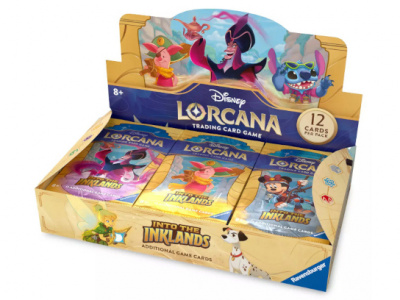 Rolling for Initiative is a weekly column by Scott Thorne, PhD, owner of Castle Perilous Games & Books in Carbondale, Illinois and instructor in marketing at Southeast Missouri State University. This week, Thorne describes the dirty little secret that keeps stores in business.
Rolling for Initiative is a weekly column by Scott Thorne, PhD, owner of Castle Perilous Games & Books in Carbondale, Illinois and instructor in marketing at Southeast Missouri State University. This week, Thorne describes the dirty little secret that keeps stores in business.I had a couple of customers come into the store earlier this week to look at Magic: The Gathering cards. During the course of the conversation, one asked about trading a couple of "Primordial Titans." I said, "Sure, we can give you $6 each for them."
The customer’s response, "But I just paid $10 each for them," at another store in the area.
I responded, "Sure, that's a fair price. In fact, that is what we will sell them for."
Ignoring the question of why the customer wanted to trade off a pair of cards he had just purchased, this little exchange illustrates retailing's dirty little secret. Want to know what it is? Incline your head this way and keep it just between us. Ready? Here it is:
Retailers pay less for products than we sell them for.
Every retailer does this, even the stores that sell products at deep discounts online. We have to. It is how we stay in business. Next time you go into Walmart or Macys or Toys R Us, take a look around. See all those products on the shelf, at least those marked at regular price, not on sale or on clearance? The store bought each and every one of them for less than the MSRP (Manufacturer's Suggested Retail Price) marked on them (well, except for loss leaders but that's a subject for another column). I worked for Walmart for about ten years during my wayward youth and the difference between the price we charged and the price we paid for a product could vary widely. For example, a tube of toothpaste the store sold for $2.99 was often purchased for $2.91. A sack of dog food we bought for $18.40 sold for $20. Meanwhile, a sweater we purchased for $10 could often sell for $30 while candles that sold for $1 would only cost the store 10 cents. Walmart's costs for products vary widely across the board but work out to an average 25% gross margin, that is, the average percentage difference between what the company pays for a product and how much it charges for it.
Similarly, the next time you go into your FLGS, look around. The store paid less for everything in the store than it charges for them. We have to do this in order to afford to provide basic and advanced services to you, our customers. That salesperson who answers your questions and explains the difference between Power Grid and Puerto Rico or who can discuss every volume of The Walking Dead doesn't do it for free. They have (and want) to earn a decent wage. Carrying an inventory to peruse comes at a cost. The lights over-head so that people can see, the heating and air conditioning to keep people comfortable, the table space to play games at, the chairs in which to read your books, the Wifi the store provides, the bathrooms, even the co-ordination of Friday Night Magic, Yu-Gi-Oh! Sneak Peeks, Free Comic Book Day and FFG Store Championships all have some cost that gets paid for out of the difference between what we pay for a product and what we sell it for. Unless they have a second job, the store owner pays themselves out of that profit. Most make less than the average American’s income and work more hours too.
So, yeah, if you come into a store wanting to sell cards, or comics or video games or what have you, we will not give you the amount for which we will sell it because retailers pay less for products than we sell them for.
The opinions expressed in this column are solely those of the writer, and do not necessarily reflect the views of the editorial staff of ICv2.com.







